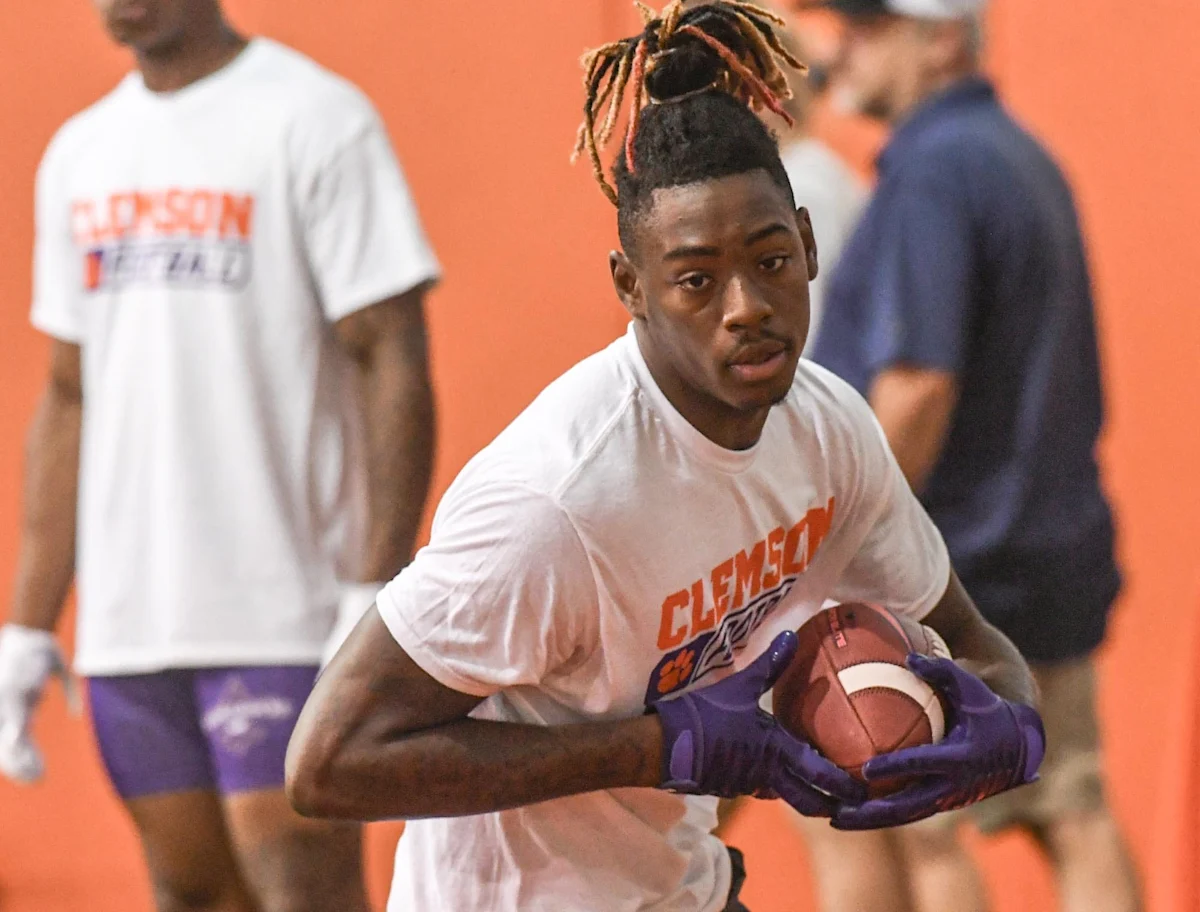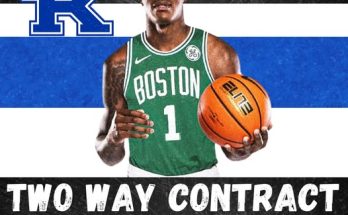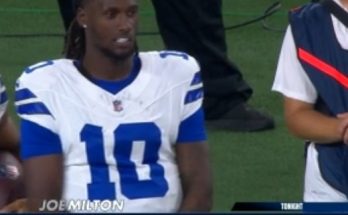The college football recruiting trail never sleeps, and few sagas have generated more buzz this offseason than the battle for elite wide receiver Cederian Morgan. The 6-foot-3, 190-pound pass catcher from Saraland, Alabama, had long been on Auburn’s radar, with the Tigers making him a top priority in their 2026 recruiting efforts. But in a gut-wrenching twist for the Auburn faithful, Morgan announced his commitment to the Alabama Crimson Tide, sending shockwaves across the SEC and adding more fuel to one of the fiercest rivalries in college football.
For weeks, speculation swirled that Auburn had made up ground in Morgan’s recruitment. Hugh Freeze and his staff invested serious time and energy, making multiple visits, hosting him for unofficials, and laying out a vision of Morgan being the centerpiece of a revamped Tigers offense. Auburn fans clung to hope that the Freeze-led resurgence would be enough to lure the talented wideout away from the gravitational pull of Tuscaloosa. But ultimately, Alabama’s tradition, brand, and perhaps most importantly, its deep-rooted recruiting infrastructure, prevailed.
Morgan’s decision represents more than just the loss of a highly rated recruit. It’s a direct shot across the bow in what has become a recruiting arms race between Alabama and Auburn. Every recruiting cycle carries its own drama, but when elite prospects from the state of Alabama are involved, the stakes rise dramatically. This is not just about talent evaluation or roster building—it’s about pride, legacy, and the ability to plant a flag in the heart of a fiercely contested battlefield.
Alabama’s victory in this recruitment was punctuated by the usual hallmarks of a powerhouse program. Nick Saban may have retired, but the culture he cultivated lives on. Under new head coach Kalen DeBoer, Alabama has proven it still knows how to close on blue-chip talent, particularly when it comes to prospects within state borders. Morgan becomes the latest in a long line of elite in-state players who’ve donned the Crimson Tide uniform, much to the dismay of their Auburn counterparts.
The announcement came via a short but impactful video posted on Morgan’s social media channels. Dressed in Alabama crimson, flanked by family members and surrounded by teammates, he made it clear that his decision was rooted in both tradition and opportunity. “Alabama is where I feel I can become the best version of myself on and off the field,” Morgan said in the video. “The culture, the coaches, and the standard—they’re unmatched.”
While that message resonated with Alabama supporters, it landed like a gut punch on the Plains. Auburn had gone all-in on Morgan, pitching him on immediate playing time, the chance to be a foundational piece in a rising offense, and the opportunity to become a hometown hero by choosing the Tigers over the Tide. Freeze has spoken often about the importance of keeping elite in-state talent home, and Morgan represented both the challenge and the opportunity of that goal. Losing him to Alabama underscores how steep that climb remains.
From a strategic standpoint, Morgan was the kind of talent that could have altered Auburn’s offensive identity. He’s not just a burner or a big body—he’s both. With elite ball-tracking skills, excellent route-running polish, and a physical style of play, he projects as a No. 1 receiver at the college level. Auburn’s receiver room has been searching for that kind of presence, someone who can tilt the field and force opposing defenses to game plan around his presence. Morgan had the tools to be that guy.
Alabama, for its part, adds yet another weapon to a roster that never seems to lack for firepower. Morgan’s commitment likely cements him as one of the headliners of their 2026 class. His blend of size, speed, and polish makes him a plug-and-play threat in the SEC. For DeBoer and his staff, this is a massive win—not just for the on-field boost Morgan will provide, but for the symbolic value of winning a high-profile in-state battle. It reinforces the message that Alabama isn’t going anywhere in the post-Saban era.
For Auburn, the challenge now becomes twofold. First, the Tigers must regroup and refocus their 2026 wide receiver recruiting board. There are still quality options out there, but Morgan was a singular target—someone who perfectly fit Freeze’s offensive vision. Finding a comparable alternative won’t be easy, especially this late in the cycle. Second, Auburn must continue to chip away at Alabama’s dominance on the trail. Freeze has made progress in that regard, landing key wins over Georgia, LSU, and even Alabama in select battles. But the Morgan miss is a reminder of how difficult it is to flip the balance of power when it comes to the state’s top talent.
The loss also reignites the conversation around NIL and the influence it plays in recruiting decisions. While neither Morgan nor his camp have cited NIL as a factor, it’s no secret that Alabama’s collective is among the best funded and most organized in the nation. Auburn has made strides in that arena, but as Freeze himself admitted recently, there’s still work to do when it comes to competing with the SEC’s biggest spenders. Whether or not NIL played a role in Morgan’s decision, it’s part of the broader ecosystem that shapes where elite players land.
Another layer to this recruiting battle is the emotional toll it takes on fan bases. Auburn fans had hoped this would be a signature win—proof that the Freeze era was beginning to turn the tide, so to speak. Instead, the narrative becomes one of a missed opportunity and lingering questions about what more could have been done. Morgan’s commitment to Alabama doesn’t define Auburn’s class, but it will be remembered as a painful “what if.”
Still, all is not lost for the Tigers. Recruiting is a marathon, not a sprint, and the 2026 cycle has plenty of twists and turns left. Freeze and his staff have shown they can compete for top talent, and this setback will likely fuel their efforts even more. The response from Auburn’s staff will be telling. Can they turn this loss into motivation? Can they identify and land a similarly dynamic pass catcher? Can they prevent this moment from becoming a trend?
Ultimately, Cederian Morgan’s decision to commit to Alabama underscores both the reality and the ruthlessness of SEC recruiting. Every win matters, every loss stings, and every battle is part of a much larger war for supremacy. For Alabama, this is a moment of validation—a sign that their machine continues to roll. For Auburn, it’s a call to arms—a reminder that to rise to the top, you must first win the fights closest to home.
The Plains will lick their wounds, but they won’t retreat. Freeze is building something in Auburn, and while Morgan won’t be part of it, the pursuit of greatness continues. The rivalry, the stakes, and the passion remain as intense as ever. And somewhere down the line, perhaps in a future Iron Bowl, the story of Cederian Morgan will add yet another chapter to one of college football’s most storied clashes.



